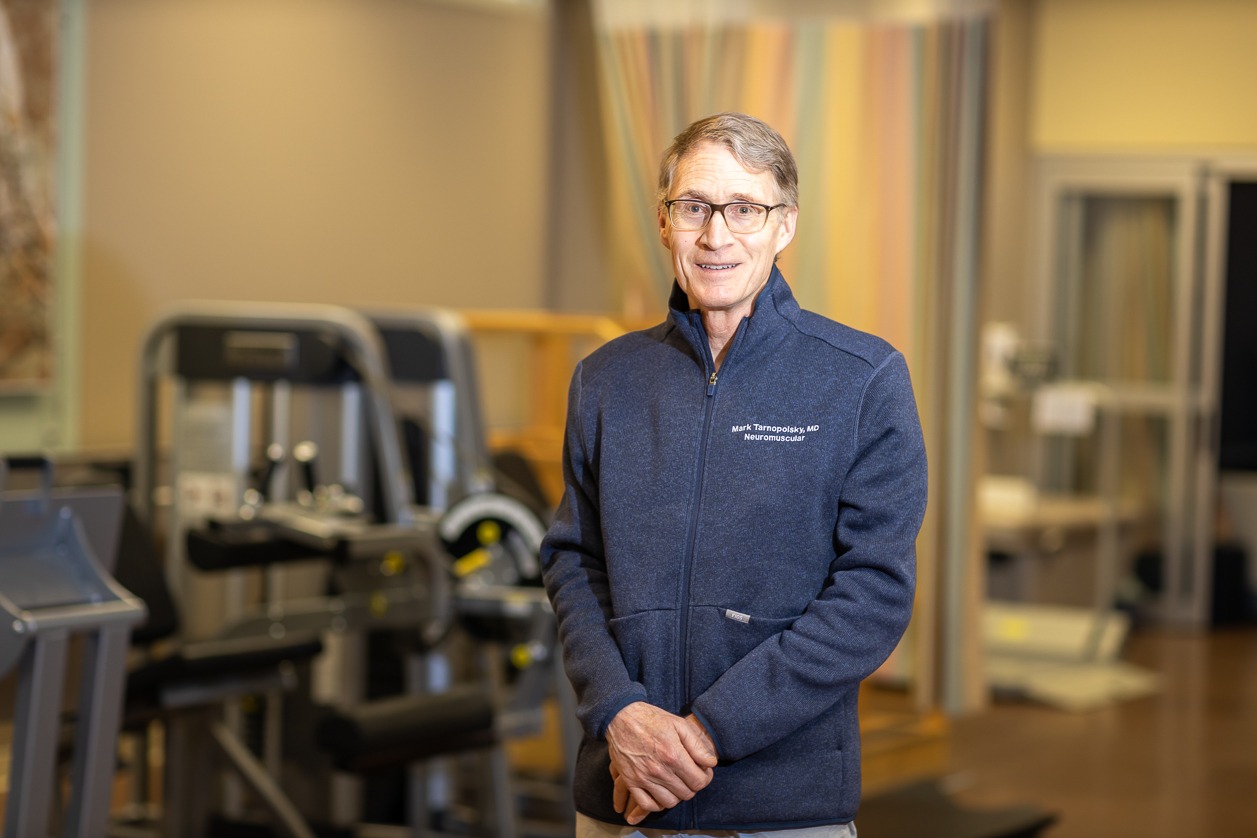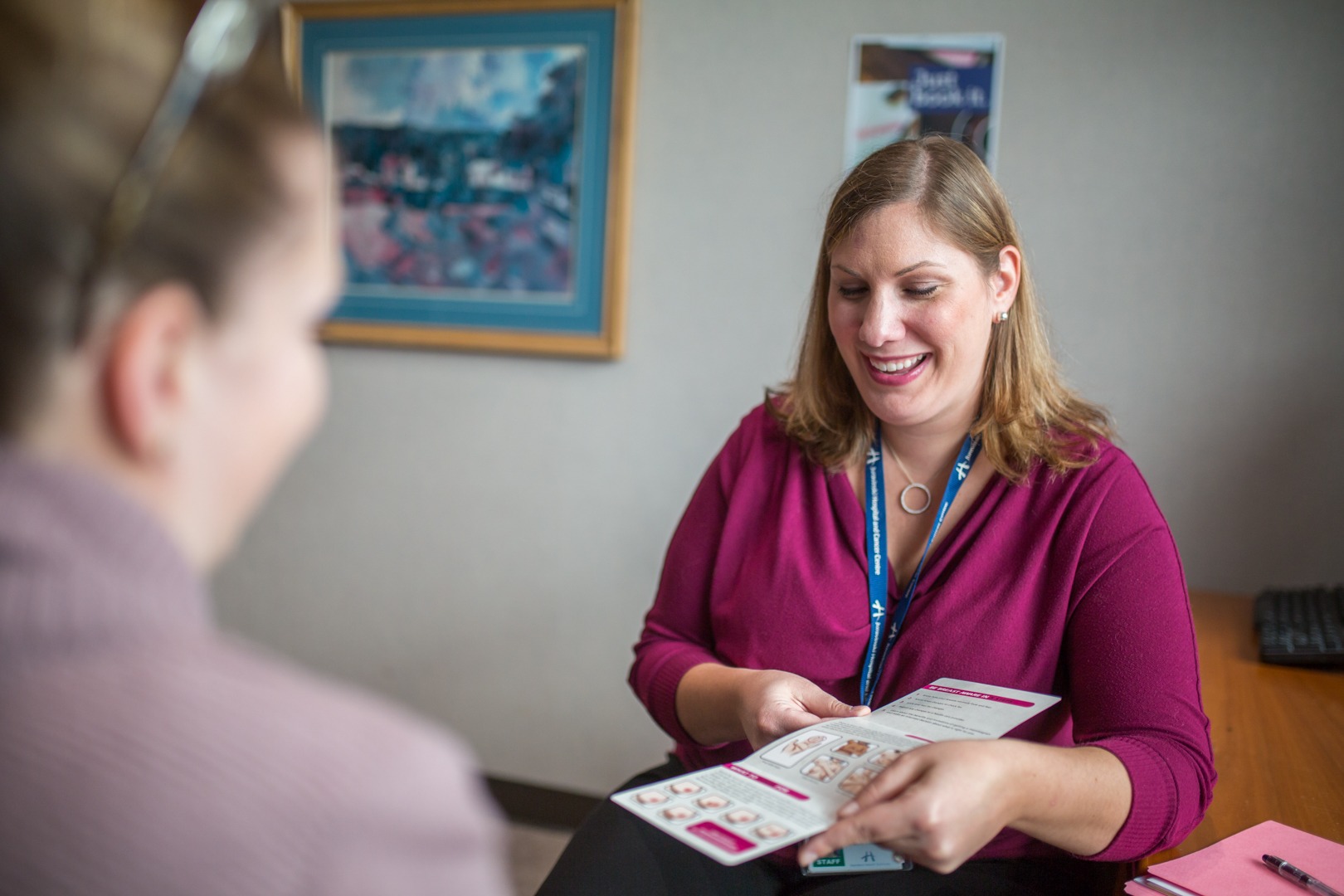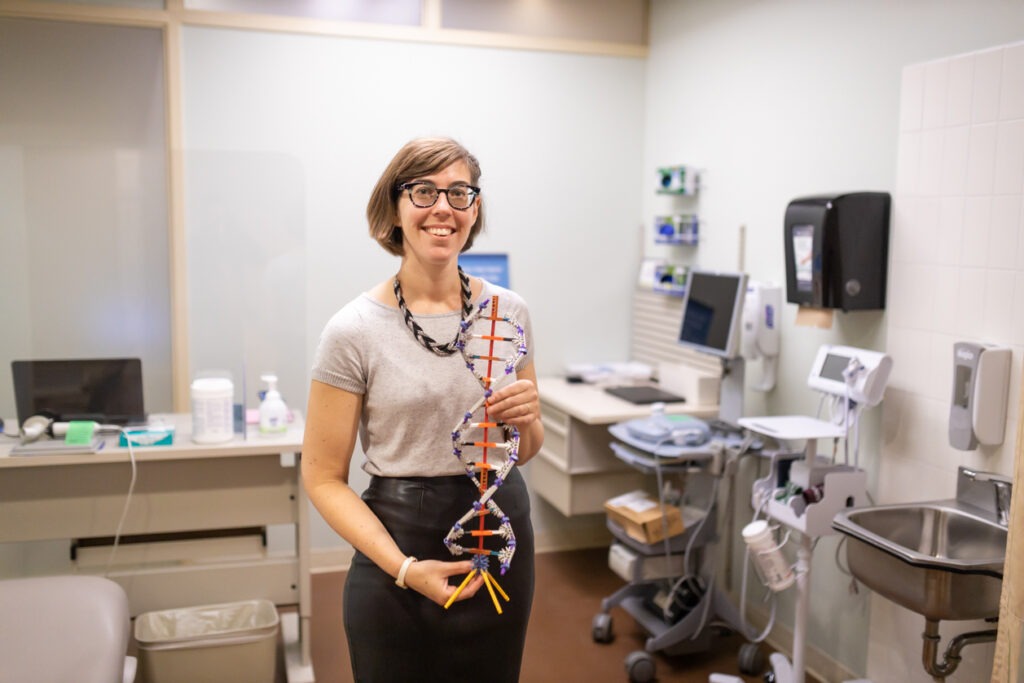
Unique genetic clinic serves both adults and children
November 9 is Genetic Counsellor Awareness Day.
Inside the cells of our body, we all have genes made up of our own unique DNA. Genes make us human and similar to one another, and genes are also responsible for differences between us, like hair colour. Your genes might make you look similar to a parent or, in some cases, your genes are responsible for a disease.
Staff and doctors at the Neuromuscular Clinic at Hamilton Health Sciences’ McMaster Children’s Hospital provide treatment and management of muscular dystrophies, nerve diseases that affect breathing and movement, and mitochondrial diseases where cells don’t produce energy normally.
Most of these issues are caused by genetic conditions, so the clinic includes diagnostic testing for genetic conditions as well as clinical care for more than 2500 patients a year.
Genetic counsellors like Lauren Brady are key team members for this specialized care, providing information and care to adults and children. Not only does she understand the complicated science behind genetic diagnosis but she also has expertise in how to talk to people about this sensitive topic, answer their questions and help them make decisions about their future.
What is a genetic counsellor?
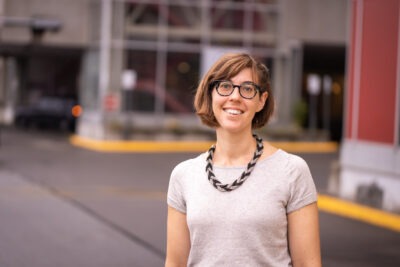
Lauren Brady, genetic counsellor at McMaster Children’s Hospital, sees patients of all ages.
Genetic counsellors have a master’s degree in genetics and counselling. They evaluate individuals, couples, or pregnancies for inherited conditions, order genetic testing, and explain the implications of the results to patients. As genetic conditions touch most areas of medicine, counsellors usually work in subspecialty clinics. Areas of specialty include but are not limited to prenatal diagnostics, cancer genetics, metabolic genetics, cardiac genetics, or general genetics.
“Our clinic is unique as we see both children and adults,” says Brady. “For example, we’re a newborn screening site and regional treatment center for a genetic condition known as Spinal Muscular Atrophy. We also see children with developmental delays or other neurological concerns for genetic testing. Families prefer this model as it allows them to continue receiving care at the same clinic without worrying about transitioning from pediatric to adult care.”
A day in the life
“Those who know me know that my day always starts with coffee,” laughs Brady. The Neuromuscular Clinic operates on Mondays, Tuesdays, and Wednesday afternoons. During these times, Brady sees patients along with Dr. Mark Tarnopolsky, director of the Neuromuscular Clinic.
“These could be new consults, regular follow-ups, or result disclosure appointments,” she says. “The rest of the week is dedicated to case management, result interpretation and research, and prepping the following week’s appointments.”
The clinic is also engaged in several studies and collaborations using new technologies to diagnose difficult cases. “We’re participating in a handful of international collaborations at any given time, which involves me writing case reports or contributing to case series to describe new genetic conditions,” says Brady.
Why the interest in human genetics?
Brady started working at the Neuromuscular clinic with Tarnopolsky after graduating from the genetic counselling program at Sarah Lawrence College in Bronxville, NY in 2012. However, she had already worked with the HHS team the previous summer when she was performing a retrospective chart review for her graduate thesis project.
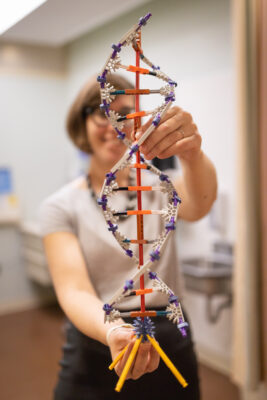
Inside the intricate cells of our bodies, lies a treasure trove of genes, each crafted from our very own distinctive DNA.
“Because of my interest in neuromuscular conditions, I approached Dr. Tarnopolsky to be my thesis supervisor and happily, he agreed,” says Brady. “I knew that I didn’t want to be a doctor, a teacher, or a researcher – but there were aspects of each of these careers I liked. Genetic counselling seemed to be the perfect combination of these roles and so was the logical choice.”
Brady says she enjoys the ongoing learning required in the field of genetics. “Since 2012, over 1000 new genes or conditions have been identified. It’s not uncommon to get a genetic result for a patient with a newly discovered gene that was only described in a few patients the previous year.”
Time required for genetic testing
Genetic testing is challenging as results may take longer than expected.
“One of the biggest challenges for families is the length of time it can take to receive results,” says Brady. “Unlike other blood tests, some genetic tests such as chromosome microarrays can take up to six months to receive results.” A microarray is a laboratory tool used to detect the expression of thousands of genes at the same time and is the first-line genetic test for any child with global development delays.
Testing occurs in a stepwise manner, so for a child with a suspected neurodevelopmental disorder, parents have to wait for the microarray results before moving on to other testing.
An ever-growing field of knowledge
Genetics has now become a vital component of numerous medical specializations. In the past, genetic testing was primarily conducted in specialized genetics clinics, focusing mostly on pediatric and metabolic disorders. However, the advent of a new genetic sequencing technology called “Next Generation Sequencing” in 2010/2011 has revolutionized the field.
“This breakthrough has empowered us to discover new genetic conditions and gain a better comprehension of the essential roles that our genes play in diverse areas of human health, ranging from neurodevelopmental disorders to predispositions to cardiomyopathies, arrhythmias, epilepsies, and cancers,” says Brady.
Brady remembers that during her graduate school days, one of her professors said that genetics was a subset of medicine but in the future, medicine would become a subset of genetics. “It seems that this prediction is coming true in some aspects,” says Brady. “With the increasing size and significance of genetics, the term ‘genomic counseling’ is now becoming more common.”

